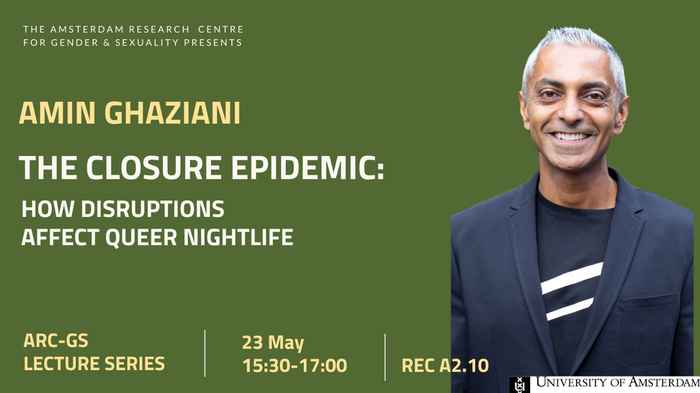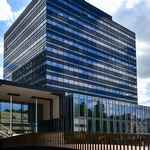The Closure Epidemic. How disruptions affect queer nightlife
Talk by Amin Ghaziani
- Date
- 23 May 2025
- Time
- 15:30 -17:00
- Location
- Roeterseilandcampus - building A
- Room
- A2.10

Gay bars are closing around the world, and they have attracted urgent attention from scholars across disciplines. But loss is not the whole story. The image of nightlife as besieged by closures obscures what else is happening—and that what else provides a point of departure for this talk.
Drawing on ethnographic observations and more than one hundred interviews, Ghaziani argues that bar closures disrupted the field of nightlife and consequently encouraged the visibility of alternate forms of fellowship called “club nights.”
Unlike the fixed, place-based model of bars, club nights are spatially mobile, event-based occasions that are reorienting nightlife, an outcome accelerated by greater awareness of the intersectional failures of gay bars. This argument showcases nightlife forms seldom studied by social scientists, highlights the creative capacity of disruptions, and redirects conversations in the academy from deficit to asset and joy.
About the speaker
Amin Ghaziani is Professor of Sociology, Canada Research Chair in Urban Sexualities, and co-editor of Contexts, the public-facing magazine of the American Sociological Association. A senior member of the faculty at The University of British Columbia, Dr. Ghaziani is author of 60 articles, chapters, and essays, including in the American Sociological Review, Annual Review of Sociology, Demography, Social Problems, Theory & Society, and Urban Studies.
He is also author or editor of 6 books. Published by Princeton University Press in 2024, his most recent, Long Live Queer Nightlife, was reviewed by The New York Times, who observes that “Ghaziani shines as an academic,” and The Nation, who describes the book as “at once intimate and meticulous.” Library Journal extended a starred distinction, calling the work “an accessible, absorbing look into an evolving form of queer culture, written by a brilliant sociologist.'
This talk is hosted by the Amsterdam Research Centre for Gender and Sexuality (ARC-GS).
